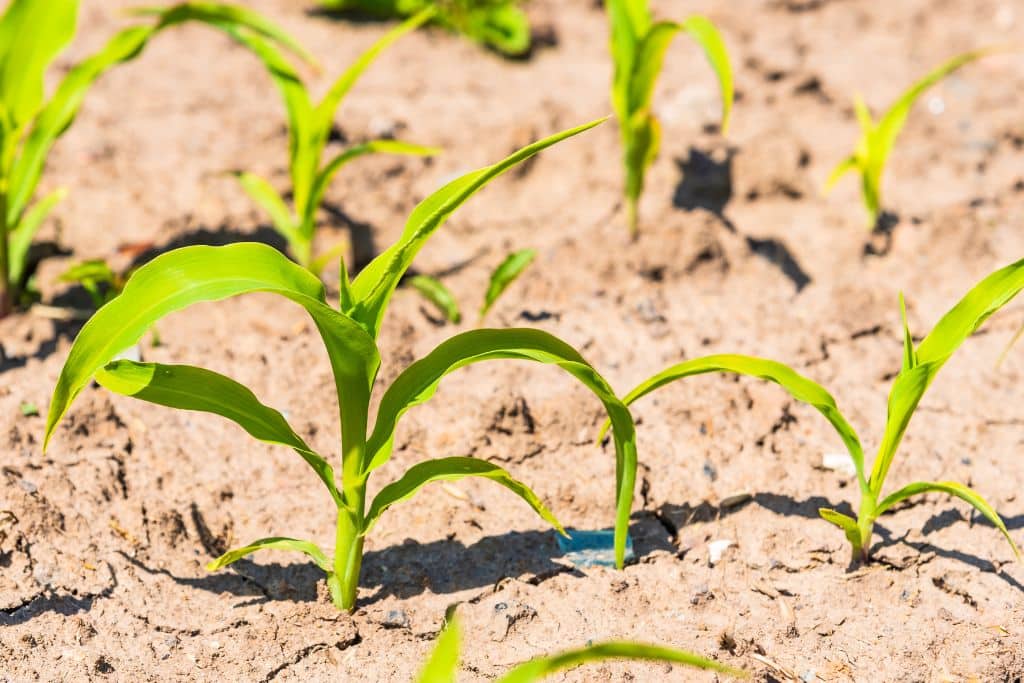Since June 2023, the world has been witnessing unparalleled extreme weather events across all regions. Whether it is in India, China, Europe, or the United States, we see various forms of weather changes such as floods, heatwaves, dry spells, and historic temperatures, both on land and in the oceans. These natural disasters, the direct result of climate change, are shaping the agricultural sector, leading to hunger and poverty. Here’s why we can no longer ignore the impact of climate change on global food security.
—
Heavy rainfall in the Northern parts of India during mid-July has taken a toll on farmers, especially paddy growers, submerging a large part of their cultivated land. This has caused distress among farming communities as they face significant losses in crop yield in the early stages of sowing.
India’s role as the world’s top rice exporter adds to the concern, with over 40% of global rice exports coming from the country. However, the recent climate-related challenges, such as the delayed monsoon and subsequent heavy rains, have impacted rice production in India and could have broader implications for global food security. Mass adoption of Agtech solutions could have been a game-changer here, leveraging weather analysis to automate sowing and harvesting schedules and potentially mitigating the damage caused by unpredictable weather.
The scene is not much different in North America. In the heartland of America’s agricultural landscape, the situation became increasingly concerning for Midwestern farmers during the summer. The region’s vital breadbasket – encompassing states like Kansas, Nebraska, Missouri, and Ohio – was grappling with worsening drought conditions. The anxiety among farmers is palpable as they face the challenges of sustaining their crops, with corn, vineyards, soybean, and strawberry farmers feeling the impact of water scarcity.
You might also like: US Sets Record For the Most Billion-Dollar Natural Disasters In Single Year
Many European countries, including Greece, Italy, Spain, France, Germany, and Poland, were also grappling with a similar dry weather spell.
The writing on the wall is clear; climate change is here and it will only intensify in the coming years. As per a report by World Weather Attribution, an international consortium of scientists, the frequency of heatwaves in North America, Europe, and China has surged in recent years, driven by human-induced warming. The current heatwaves are no longer considered rare occurrences in today’s climate, with an event like the one expected presently happening approximately once every 15 years in the US/Mexico region, once every 10 years in Southern Europe, and once every 5 years in China, according to the scientists. The weather episodes in July 2023 and subsequent months would have been nearly impossible without the influence of human activities, specifically the combustion of fossil fuels.
I find myself pondering a crucial question: How big is the impact of climate change on global food security?
The undeniable reality of climate change is disrupting human beings and the planet at large in multiple ways. Understanding the extent of this impact becomes essential in addressing the challenges it poses to food security, agricultural productivity, and the well-being of communities worldwide. And it is no coincidence that hunger is on the rise.
You might also like: 3 Biggest Threats to Global Food Security
The recently published State of Food Security and Nutrition in the World (SOFI) report by the UN Food and Agriculture Organization (FAO) presents distressing numbers, with 735 million people currently experiencing hunger, compared to 613 million in 2019. Alarming trends are observed in regions like Western Asia, the Caribbean, and various parts of Africa, where hunger is surging. Additionally, 2.4 billion people lack access to nutritious, safe, and sufficient food, disproportionately impacting women and rural communities.
In the face of growing hunger and food insecurity worldwide, collaboration among governments, international organisations, and communities is crucial to establish a sustainable and inclusive food system for all. The challenges ahead are immense, but by recognising the scale of the issue and working collectively to implement effective solutions, we can strive towards a world where every individual has access to nourishing food, safeguarding the well-being of future generations.
Amidst these pressing challenges, agri-tech emerges as a common platform to drive transformation in the agriculture sector. Currently, technology adoption in agriculture remains limited, but it is vital to prepare our farmers and agri-food value chain providers to better cope with the impacts of natural disasters. Traditional agricultural methods are faltering under the strain of unpredictable weather and atmospheric conditions, disrupting water availability, crop growth, productivity, and farmer income.
A shift towards Climate Smart Agriculture (CSA) becomes indispensable, encompassing crop selection, optimal sowing and harvesting times, water management, and climate-resilient farming practices. Agritech solutions enable constant monitoring of soil conditions, water resources, and weather patterns, empowering farmers to make informed decisions during extreme weather events.
The urgency for a farming revolution cannot be overstated. Delaying it would have catastrophic effects not only on this sector but on the very survival of humanity. We must embrace digitalisation and AI-based solutions to drive an agricultural revolution that can be a genuine saviour for the challenges at hand. The potential of agri-tech is yet to be fully realised, and given the unprecedented climatic impact, this revolution is no longer a choice for the distant future. It must occur within the coming months and years, as we cannot afford to wait for decades to address the urgent need for global food security. Ensuring ample nutritious food for the global population must remain the foremost priority for governments, international organisations, and agribusinesses alike. Feeding the hungry and nourishing the world’s population should be at the forefront of their agenda.
You might also like: Can Traditional Farming Withstand Another Summer of Record-Breaking Heatwaves?




















